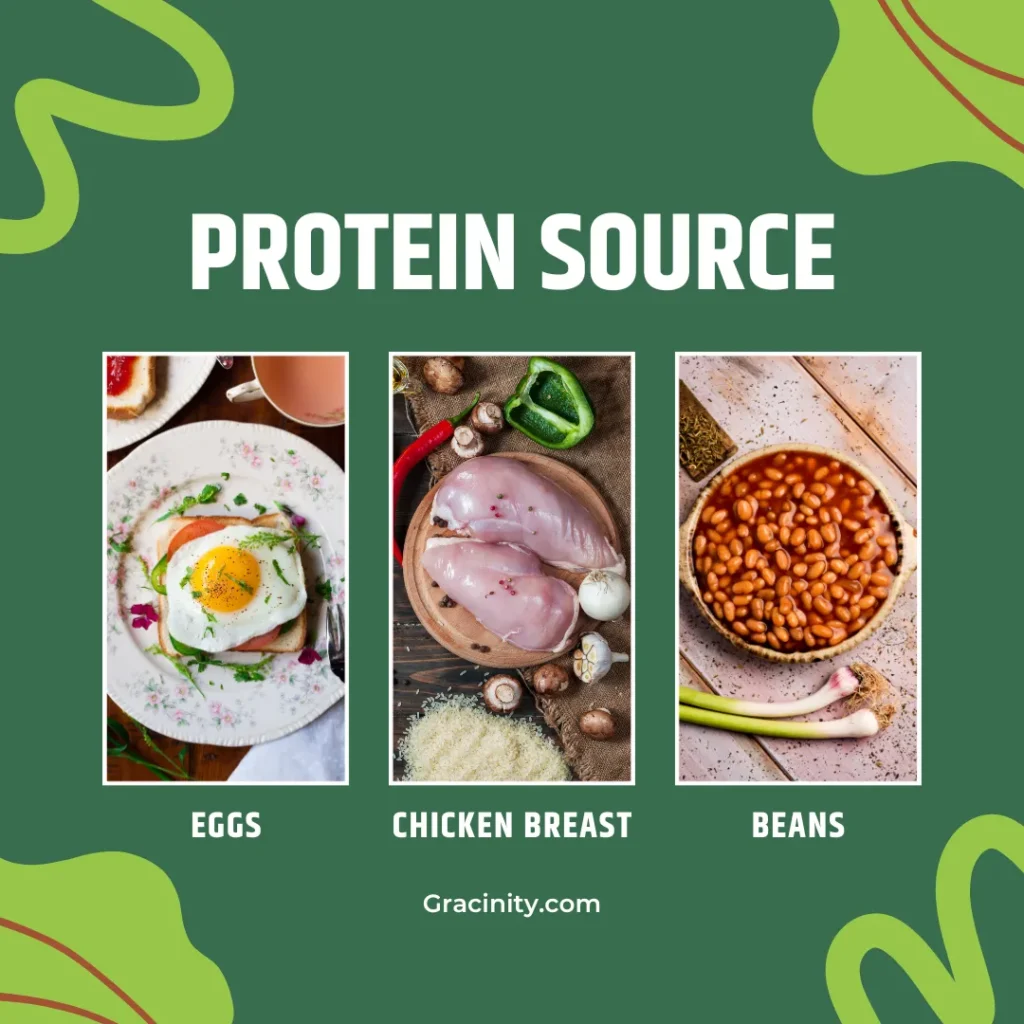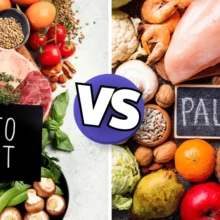Ideal Protein Diet: Unlock Your Weight Loss Potential in 2024!

The Ideal Protein Diet has garnered significant attention as a promising solution for those seeking successful weight loss. This diet is not just another trend; it is based on a well-defined protocol that focuses on a high-protein, low-carbohydrate, low-fat regimen, aiming to reset your body’s metabolism to optimize fat loss. Originating from the insights of Dr. Tran Tien Chanh, the diet was initially developed to protect muscle mass while promoting fat loss.
In this blog post, we will delve into what makes the Ideal Protein Diet a unique and effective choice for those looking to shed pounds safely and sustainably. We’ll explore its fundamental principles, the foods it promotes, and the science behind its success. By understanding the nuances of this diet, you can make an informed decision about whether it’s the right path for your weight loss journey.
Table of Contents
Core Components of the Ideal Protein Diet
The Ideal Protein Diet is distinguished by its structured approach, which is designed to be straightforward yet effective. This section will provide an overview of the diet’s phases, the key foods and ingredients it recommends, and its foundational high-protein, low-carb, low-fat methodology.
Phases of the Ideal Protein Diet
The diet is divided into four distinct phases, each designed to help you transition from weight loss to maintenance:
- Phase 1: Weight Loss – You stay in this phase until 100% of your weight loss goal is achieved. During this phase, you consume Ideal Protein foods along with vegetables and salads.
- Phase 2: 14-day – A transitional phase where you gradually reduce Ideal Protein meals and introduce more whole foods.
- Phase 3: Pre-stabilization – For 2 weeks, breakfast becomes a normal meal of proteins, carbohydrates, and fats, while lunch and dinner follow the protocols of Phase 1.
- Phase 4: Maintenance – You apply the healthier eating principles you’ve learned from the program to maintain your new weight.
Key Foods and Ingredients
The diet emphasizes foods that are rich in high-quality protein, which helps to preserve muscle mass during weight loss. Some staples of the Ideal Protein Diet include:
- Ideal Protein packets (pre-packaged meals and shakes)
- Lean meats such as chicken, turkey, and fish
- Vegetables low in carbohydrates like kale, broccoli, and zucchini
- Healthy fats from sources like olive oil and avocados
Diet Approach: High-Protein, Low-Carb, Low-Fat
The core philosophy of the Ideal Protein Diet is reducing carbohydrate intake to encourage the body to burn fat for energy, a process known as ketosis. Simultaneously, a high protein intake supports muscle maintenance, and low fat helps reduce overall calorie intake.
- High-Protein: Sufficient protein is critical for maintaining lean muscle tissue while losing fat.
- Low-Carbohydrate: Limiting carbs helps induce ketosis, where the body burns fat for fuel instead of glucose.
- Low-Fat: Reducing fat intake helps lower overall calories, which is essential for weight loss.
This comprehensive approach not only aids in rapid weight loss but also helps in retraining your eating habits for long-term health benefits.
How the Ideal Protein Diet Promotes Weight Loss
The Ideal Protein Diet is engineered not just for weight loss but for sustainable fat loss while preserving muscle mass. This section will explore the scientific mechanisms behind its effectiveness, including the role of ketosis and the benefits of a high-protein intake compared to other diets.
Understanding Ketosis in the Ideal Protein Diet
Ketosis is a metabolic state induced by a low carbohydrate intake, where the body burns stored fat for energy instead of glucose. The Ideal Protein Diet strategically reduces carbohydrate consumption to trigger this process, effectively turning your body into a fat-burning machine. By maintaining a state of ketosis, you can achieve consistent and efficient weight loss.
- Triggering Ketosis: The diet limits carbs so your body switches to burning fat for fuel.
- Sustained Energy: Ketosis also helps stabilize blood sugar levels, reducing spikes and crashes in energy.
The Metabolic Advantages of a High-Protein Diet
A high-protein diet is essential for preserving lean muscle tissue during weight loss, which is critical as muscle burns more calories than fat, even at rest. The Ideal Protein Diet emphasizes protein-rich foods to ensure that your body can maintain muscle mass while losing weight.
- Muscle Maintenance: Proteins are the building blocks of muscle, and adequate intake is crucial when calorie consumption is reduced.
- Metabolic Rate: Higher muscle mass helps sustain a higher metabolic rate, which can aid in faster weight loss.
Comparative Analysis With Other Popular Diets
While many diets focus on calorie restriction or whole-food approaches, the Ideal Protein Diet combines multiple aspects for effective weight management:
- Focused Fat Loss: Unlike general low-calorie diets that can lead to muscle loss, this diet ensures fat loss while protecting muscle.
- Structured Phases: The phased approach helps individuals not only lose weight but also learn maintenance habits for long-term health.
The Ideal Protein Diet stands out by providing a scientifically backed, structured, and nutrient-focused approach to weight loss, making it a compelling option for those serious about achieving their weight loss goals efficiently.
Benefits of the Ideal Protein Diet Beyond Weight Loss
While the primary goal of the Ideal Protein Diet is effective weight loss, it also offers several additional health benefits that contribute to a healthier lifestyle. This section will cover how this diet impacts metabolic health, blood sugar control, and cardiovascular health.
Improved Metabolic Health and Energy Levels
The Ideal Protein Diet not only aids in fat loss but also enhances overall metabolic health. By regulating carbohydrate intake and boosting protein consumption, the diet helps stabilize insulin levels and improve metabolic function.
- Enhanced Metabolism: High protein intake and ketosis can increase metabolic rate, making the body more efficient at burning calories.
- Stable Energy: Reducing carbohydrate fluctuations helps maintain consistent energy levels throughout the day, preventing the common highs and lows associated with sugar spikes.
Benefits for Blood Sugar Control
This diet can be particularly beneficial for individuals with type 2 diabetes or those at risk of developing it. The low-carb approach helps manage blood sugar levels, reducing the need for insulin and other blood sugar-regulating medications.
- Lower Glycemic Load: By consuming fewer carbohydrates, the Ideal Protein Diet significantly reduces the glycemic load on your body.
- Improved Insulin Sensitivity: A high-protein, low-carb diet can improve insulin sensitivity, making it easier for your body to manage glucose effectively.
Cardiovascular Health Enhancements
Adopting the Ideal Protein Diet can also positively affect cardiovascular health by promoting a healthier lipid profile and reducing the risk factors associated with heart disease.
- Reduced Cholesterol and Triglycerides: The diet’s composition helps lower levels of LDL (bad) cholesterol and triglycerides, which are crucial factors in cardiovascular health.
- Blood Pressure Management: Weight loss and improved metabolic health can also lead to better blood pressure control, further reducing heart disease risks.
The Ideal Protein Diet offers comprehensive benefits that go beyond mere weight loss, supporting long-term health improvements in various areas critical for overall wellness.
Potential Challenges and Side Effects
Adopting the Ideal Protein Diet can be highly effective for weight loss, but like any significant dietary change, it may come with challenges and side effects. This section will address common issues participants might encounter, offering practical advice on how to manage and mitigate these potential hurdles.
Common Challenges When Starting the Ideal Protein Diet
Initiating a diet that significantly alters your typical food intake, like the Ideal Protein Diet, often leads to initial discomfort or difficulties, commonly known as the keto flu.
- Symptoms of Keto Flu: Participants might experience fatigue, headaches, or irritability as their bodies adjust to a lower carbohydrate intake.
- Adjustment Period: These symptoms are usually temporary, lasting a few days to a week as the body transitions into ketosis.
Long-term Sustainability Concerns
While the Ideal Protein Diet is effective for short-term weight loss, maintaining this diet long-term can be challenging due to its restrictive nature.
- Dietary Restrictions: The strict phase structure and food limitations can be difficult to maintain, especially in social settings.
- Transition Strategies: It’s crucial to plan a gradual transition into a more sustainable, balanced eating pattern post-diet to maintain weight loss results.
Tips on Managing Side Effects and Dietary Adjustments
To reduce the impact of these challenges and enhance the diet’s sustainability, consider the following strategies:
- Hydration and Electrolytes: Increase your water intake and consider adding electrolytes to combat symptoms of the keto flu.
- Balanced Meal Planning: Incorporate a variety of approved foods within the diet’s guidelines to keep meals interesting and nutritionally balanced.
- Professional Guidance: Consulting with a healthcare provider or a dietitian can provide personalized advice and adjustments based on individual health needs and responses to the diet.
Understanding these potential challenges and preparing for them can make your experience with the Ideal Protein Diet more comfortable and successful, leading to better and more sustainable results.
Ideal Protein Diet and Lifestyle Changes
Adopting the Ideal Protein Diet is not only about changing what you eat but also how you integrate these changes into your daily life. This section will explore how to maintain dietary discipline while balancing social engagements, and the importance of incorporating physical activity to enhance the diet’s effectiveness.
Integrating the Diet into Different Lifestyles
Making the Ideal Protein Diet work in various lifestyle settings involves planning and creativity. Whether you’re a busy professional, a student, or a stay-at-home parent, tailoring the diet to fit your routine is crucial.
- Meal Prep Strategies: Preparing meals in advance can help maintain consistency, especially during busy weekdays.
- Flexible Dieting Tips: Learn how to make smart food choices that adhere to the diet’s principles when dining out or traveling.
Maintaining Social and Dining Engagements
One of the more challenging aspects of strict dietary plans like the Ideal Protein Diet is navigating social situations that involve food.
- Communicating Dietary Needs: Don’t hesitate to explain your dietary restrictions to hosts or restaurant staff.
- Choosing the Right Foods: Opt for meals that align with the diet’s guidelines, such as dishes high in protein and low in carbs and fats.
Importance of Physical Activity Alongside the Diet
While the Ideal Protein Diet primarily focuses on nutrition, integrating regular physical activity can significantly enhance weight loss and overall health.
- Exercise Recommendations: Start with mild to moderate exercises, such as walking or light jogging, especially if you’re new to regular physical activity.
- Building Up Intensity: As your body adjusts to the diet and your fitness improves, gradually increase the intensity and variety of your workouts.
By effectively integrating the Ideal Protein Diet into your lifestyle and maintaining active social and physical routines, you can maximize your weight loss results and enjoy a healthier, more balanced life.
Success Stories: Before and After
The Ideal Protein Diet has transformed many lives, not just through significant weight loss, but also by improving overall health and well-being. This section will highlight real-life success stories and key insights from individuals who have followed the diet, showcasing the transformative power of this program.
Case Studies and Success Stories of Individuals on the Ideal Protein Diet
Hearing from those who have successfully navigated the Ideal Protein Diet can provide motivation and real-world proof of its effectiveness. We’ll explore a variety of testimonials that detail both the challenges and triumphs encountered on this weight loss journey.
- Personal Achievements: Learn how different individuals achieved significant weight loss and maintained it.
- Diverse Experiences: Stories from a wide range of demographics show how the diet is adaptable to various lifestyles and needs.
Key Takeaways from Successful Weight Loss Journeys
Each success story is unique, but common themes often emerge that can provide valuable lessons for new and prospective dieters.
- Consistency and Commitment: The importance of sticking to the diet’s guidelines even when progress seems slow.
- Support Systems: How family, friends, and the Ideal Protein community play a crucial role in maintaining motivation.
Visual Content: Progress Pictures and Graphs
Visuals can be incredibly impactful, providing a stark before-and-after comparison that illustrates the physical changes that come with weight loss.
- Inspirational Visuals: Before-and-after photos that showcase the physical transformation achieved through the diet.
- Progress Tracking: Graphs and charts that display weight loss over time, highlighting the effectiveness of the diet plan.
These stories and visuals not only serve to inspire but also to illustrate the practical application of the Ideal Protein Diet in everyday life, demonstrating its potential to significantly alter body composition and health outcomes.
FAQs About the Ideal Protein Diet
Embarking on the Ideal Protein Diet can raise many questions, especially for newcomers. This section aims to answer the most commonly asked questions, debunk myths, and provide expert insights to help you better understand how the diet works and what to expect.
Answer Commonly Asked Questions About the Diet
We have compiled a list of frequently asked questions to clarify key aspects of the Ideal Protein Diet and assist potential dieters in making informed decisions.
- What can I eat on the Ideal Protein Diet?
- The diet includes Ideal Protein foods, lean meats, selected vegetables, and essential fatty acids. It excludes sugars, dairy, and high-carb vegetables.
- How quickly will I lose weight on the Ideal Protein Diet?
- Weight loss can vary, but many individuals see significant results within the first few weeks, primarily due to water loss and fat burning induced by ketosis.
- Is the Ideal Protein Diet safe for long-term use?
- While effective for short-term weight loss, it’s best to transition to a more balanced eating plan after reaching your weight loss goals to ensure nutritional adequacy.
Address Misconceptions and Myths
Clearing up common misconceptions can help dieters avoid common pitfalls and set realistic expectations.
- Myth: You can eat unlimited protein on the diet.
- Reality: The diet focuses on optimal, not excessive, protein intake, which is crucial to prevent strain on the kidneys and maintain overall health.
- Myth: The Ideal Protein Diet works the same for everyone.
- Reality: Individual results may vary based on metabolic health, age, activity level, and adherence to the diet guidelines.
Provide Expert Insights and Advice for Newcomers
Insights from nutritionists and dieticians can provide additional depth and authority, ensuring that newcomers receive well-rounded advice.
- Starting Advice: Begin with a clear goal and a medical check-up to ensure the diet is suitable for your health status.
- Maintaining Motivation: Engage with the Ideal Protein community for support and share your progress to stay motivated.
This FAQ section should serve as a resource for understanding the Ideal Protein Diet more comprehensively, addressing both the basics and the nuances that might affect your journey.
Resources and Support for Followers of the Ideal Protein Diet
Successfully navigating the Ideal Protein Diet is much easier with the right resources and a supportive community. This section will guide you through the various tools, products, and support systems available to enhance your diet experience and ensure you stay on track.
Recommended Products and Supplements
To maximize the benefits of the Ideal Protein Diet, specific products and supplements are recommended to complement the diet plan. These ensure you meet all nutritional requirements while adhering to the diet’s protocols.
- Ideal Protein Products: These include pre-packaged meals, shakes, and snacks specifically formulated to fit the diet’s nutritional guidelines.
- Supplements: Multivitamins, omega-3 fatty acids, and potassium supplements are often recommended to balance the diet and prevent nutrient deficiencies.
List of Online Communities and Support Groups
Having access to a community of like-minded individuals can be incredibly valuable. Online forums and support groups provide motivation, accountability, and a platform to share experiences and tips.
- Official Ideal Protein Website: Offers structured support and coaching.
- Social Media Groups: Platforms like Facebook and Reddit host numerous diet-specific groups where members share their progress, challenges, and advice.
Additional Reading and Educational Resources
Educating yourself about the nutritional science behind the Ideal Protein Diet can empower you to make informed choices and understand the reasoning behind various diet phases and recommendations.
- Books and Articles: Look for publications from reputable sources that discuss high-protein, low-carb diets and their effects on the body.
- Webinars and Workshops: Participate in educational sessions hosted by health professionals that offer deeper insights into the diet.
Equipped with the right resources and support, you can navigate the Ideal Protein Diet more effectively and increase your chances of long-term success.
Is the Ideal Protein Diet Right for You?
Deciding whether the Ideal Protein Diet is the right choice for your weight loss journey involves careful consideration of its benefits and challenges. As we’ve explored in this blog post, this diet offers a structured path to significant weight loss and provides numerous health benefits beyond just shedding pounds. It enhances metabolic health, helps regulate blood sugar levels, and can improve cardiovascular health.
However, like any diet, it comes with its set of challenges. The strict protocol and dietary restrictions require a high level of commitment and may pose difficulties in social settings and long-term sustainability. It’s essential to consider your lifestyle, dietary preferences, and health conditions when deciding if this diet is suitable for you.
Personal Consultation: Always consult with a healthcare provider or a dietitian before starting any new diet plan, especially one as specific as the Ideal Protein Diet. This step is crucial to ensure the diet aligns with your personal health needs and goals.
Long-term Health Management: If you decide to pursue the Ideal Protein Diet, consider how you will transition to a more sustainable diet afterward to maintain your weight loss and continue to support your health.
Ultimately, the success of the Ideal Protein Diet depends on your ability to adhere to its guidelines and integrate it into a healthy lifestyle. With the right preparation and support, it can be a powerful tool to achieve and maintain your weight loss goals.
For more insights on achieving a healthier lifestyle, check out our other informative articles on topics such as Body Detoxification, Healthy Eating, Quick Weight Loss, and Weight Loss Diets. Dive deeper to find strategies and tips that can help you reach your wellness objectives!




